The Indie Mine is making a stronger push to bring a wider variety of content to the site and that includes interviews. Recently, I was lucky to have the opportunity to talk shop with two members of Lunar Giant Studios: Jay Margalus and Neil Wickman. With one title, Delve Deeper, already in their portfolio and another about to released, we had a lot to talk about including the indie development community in and around Chicago. It’s a long read, but a great one, and I hope you all enjoy.
Brandon: Can you each tell me a little bit about your role(s) with Lunar Giant Studios and how the company got started?
Jay Margalus: My role at Lunar Giant is primarily to expand our web presence, build business relationships, and drum up press for our games. Lunar Giant was founded, more or less, about 2 years ago by three guys who’ve known each other since grade school (two programmers, one designer). That would be Adam Eidukas, Neil Wickman, and Russ (The Stig).
A little known fact about Lunar Giant is that 3/4 of us also co-founded a hackerspace a few years back (Workshop 88), which is how I met everyone and came on board. I would say the interesting story about Lunar Giant, in general, is that we always seem to be at the center of community building. We’ve done everything from starting up the aforementioned hackerspace, to bringing our local IGDA Chapter out of its infancy.
We also all share quite a bit in common. Our monthly business meetings are inevitably followed up by a D&D session, our weekly calls have many times devolved into dorky talks about the minutiae of some gameplay mechanic or another, and we’re all huge board game lovers.
Neil Wickman: I’m Neil Wickman, one of the three founding staffers mentioned a moment ago.
My role is to produce the majority of the art content for the games. Jay has been instrumental in getting the website and media promotions off the ground, so I take no credit for that, but the game’s art and the trailers and even many of the voices for Delve Deeper (our previous game) were my handiwork. I’m also doing all the art for Touch of Death, but hopefully I’m not doing the voices this time around. We’re a small team so we wear a lot of hats, and mine are usually the artistic hats.
That was my role when we formed Lunar Giant as well. Like most small companies it starts off informally, we talked about it and mapped out some concepts that we were interested in. After moving from one idea to another we settled on Delve Deeper and went in full bore, coding and testing and making art. It was the promise of making a game company that really drove production. We’d never made a game before, but we all had made game projects on our own and had the skills to do the work, and we’d all been game players since forever. Creating the first game was an adventure, and marketing it (that is, getting it on distribution platforms and putting out the word about it) is what really turned us into a real company, in my opinion. Before then we were just three guys with a game, after that we had a name, an infrastructure, and a real idea of what it takes. And we had players asking for more, which was incredible.
Lunar Giant is special because of what we want to do with our community here, and because we want to be a force to encourage not only a really strong Chicagoland game development atmosphere, but on a personal note we want to bring back the kind of games we loved and put them out there for modern audiences to play. There’s a lot of great stuff that non-gamer people have never seen, really fun games that can shake up the industry and whole new kinds of people to be introduced to them essentially for the first time.
That’s kind-of a big picture thing, and it’s not because the industry is doing something wrong, but the growth of Indie companies really presents an opportunity for the big guys to do big Hollywood studio stuff while the small guys can sit in on the art house circuit and put out the riskier, more innovative, more unusual products, or pull a retro card and bring the classics back with a new coat of paint. People still love the things that made those games incredible and groundbreaking and incredibly fun, and people still play those ancient games (or their modern derivatives) so it’s not difficult to see how it can be done.
It’s this kind of sentiment that made us want to make a game company instead of just a game. That is to say, we wanted to create an engine for making games and influencing the market, not just make a product that gets money. One of our core principles is that we want to give gamers a good game that works and without wrecking their computers with invasive DRM or relying on cynical pricing plans. Lunar Giant isn’t stuck in the stone age, but what’s so wrong with buying a game and getting the whole game, instead of having to buy the rest of it as extra pieces that come out at the same time?
We remember when games came in a box with a bound manual, cloth maps, star charts or other little doodads you now only see in expensive and rarely released collector’s sets. We can’t bring back that kind of tangible experience (yet) but remembering when that used to be the hallmark of quality influences the way we view the way a game should feel. So we do the best to make our games with care, focus on the players, and let the quality speak for itself. We trust that gamers will pay for a quality product, and so our real goal is to make our games good.
Anyway, that’s a bit off topic, but I’m the artist so that’s allowed.
Brandon: Although I hadn’t heard of your first title, Delve Deeper, until recently, I’m anxious to try it out now as I’m a complete sucker for strategy games. What was the experience like for each of you in creating and releasing your very first game?
Jay Margalus: Releasing Delve Deeper has been, overwhelmingly, a very positive experience. By and large, reviewers have enjoyed the game, and our customers have enjoyed playing it. We’re extremely thankful to both groups. I think this says a lot about the indie game community as a whole that they’ve been very supportive and, where a normal person might tear down your work and find faults in it, they’ve instead suggested ways to improve the game.
Having said that, there are definitely a few things I would do differently next time (this is aside from the development of the game, which I think the other guys would speak better to). First of all, I would’ve released way more press on day one that the game hit Steam. Publicity for games is a very one shot deal. You want as much out there as soon as possible, and I think I missed some of that.
Second, I would’ve pushed going to conventions and publicizing our game there. Delve Deeper is such a fantastic game! I feel like we have so much to contribute to the community via conventions, etc, and we have yet to begin with that.
That’s about it, really. Aside from that, Delve Deeper has appeared in several bundles, received excellent press, and been a great experience after release. I don’t know if that’s an uncommon story for indie developers, but I’ve enjoyed the process tremendously.
Neil Wickman: Delve Deeper is most fun in a multiplayer setting, four people all backstabbing each other for their own gain. Our fans picked up on that too and we’ve never heard so many people call for one single feature so often. Network Multiplayer! Network Multiplayer! If only we had known…
The experience of making Delve Deeper was really similar to being in a boxing match for around 300 rounds. You start off fast, you get beaten down, you get a second wind, you get beaten down again, and by the end you’re barely able to stand. We had intended to finish the game in time for a competition, so I remember spending what felt like a week at a time without sleeping and just working working working to get as much art done as possible. I got a tremendous amount done, and then we didn’t end up releasing the game for a rather long time after that, so after I recovered over a four day weekend or so I came back to a lot of material to work with and it was actually a blessing in disguise–sorta. I work best under deadlines and when around other people, so those kinds of false finishes brought us together and generated a lot of content. Strange how that works out–but it shows the value of office space. You get that teamwork bonus all the time.
Just like Touch of Death, it was difficult to be working on Delve Deeper‘s art and not be able to see it move or know how it’s going to look. You lose the creative spark when you’re working in a vacuum for so long, and doing promotional images or assembling short loops are energizing moments that ended up being very important for mid-development burnout reduction. It’s also hard to learn something for the first time. Delve Deeper was my first experience with creating Pixel Art from scratch, so I had to learn how to make color palettes and paint with pixels and it was quite a challenge. Touch of Death feels the same way, and there’s a lot for one person to do when you need to do all the art and design yourself, inventing the creatures and doing their concept art as well as the production art and the animation, while learning new styles of media.
There’s not too much more to say about the art production except how brutal it was to do. I remember starting on the dragons–which are, by all rights, a grotesquely bigger-than-necessary piece of pixel art to do all by hand… and getting sick to my stomach from it. So terrified by the concept of the WORK INVOLVED that I just had to move on. They were like my Gordian Knot and I came back to it much later in the production and just knocked it out of the park (I think). It’s all about sticking to it and not giving up.
As for the things Jay mentioned, lot of our problems releasing Delve Deeper were the result of us not understanding the journalistic media very well, as well as being entirely unknown. Now we have great relationships with advertisers, distributors, and other indie developers, but back then we were so exhausted from making the game we had so much less energy for selling it. I think it was Adam who did the majority of that, on top of everything else, while I was busy cropping images for all the online stores, making box art, and creating a game trailer. Our initial advertising effort wasn’t bad, but it was still pretty amateurish now when you look back. Even so, you make a few breaks and eventually our good reviews got us noticed. Again, if you make a good game, players will pay for it and take notice. We got very good reviews overall, which I felt was what really got us the chance to make something of it. If we hadn’t put in all those hours we wouldn’t have gotten as much player-side attention, which meant we never would have gotten any media or distributor attention.
Jay is right about us dropping the ball during the first marketing push, but we were all inexperienced and he wasn’t around to handle it for us. The amount of good he’s brought as a media guy is just incredible, so we’ll never make those mistakes again. I also don’t know if it’s poor form to mention it, but Steam really was the greatest break for us on that front, at least from what I saw. We applied to be sold on Steam early on, but were turned down. After weeks of great reviews on other sites we got an invite to sell on Steam, and our profits shot up exponentially ever since. It let us go from making a lean profit to a surprisingly comfortable one, and when we talk about this being a great time for indies it’s in great part to people like the steam guys helping to provide a climate that encourages independent developers to sell alongside big names in a place everyone can see, and outside of the somewhat niche phone market.
Brandon: It’s funny you should mention Steam because it seems like a lot of the developers I keep up with are giving up on some platforms and switching to PC/Steam. XNA developers for Xbox aren’t terribly thrilled with Microsoft’s support and much has been made of the immediate success that came from Zeboyd Games’ switch to Steam. What have been some of the key elements for Lunar Games in deciding which platforms to support in both the past and going forward?
Neil Wickman: We were actually designing the game for Xbox originally, not for the PC. But the changes to the indie arcade they made, on top of their support structure and the beamoanable application process were so frustrating that we had literally no option but to go to the PC, where we were wildly successful compared to what Xbox was promising to put us through.
I can’t speak about the code, but that was a pretty dramatic example of why people have moved to the PC. It’s just not an insanely backwards way of doing things, and Steam is not only really well supported, but a friendly and profitable avenue for developers AND players to interact.
In the future we’re trying to mix it up a bit. That’s mostly a marketing thing, we wanted to do some small games that are fun and quicker to produce, more like old-style arcade games and the like. That will help pay for the relatively longer and riskier process of making a ‘big’ game like a Delve Deeper sequel for the PC, which can be a year or more of production for two or three guys, as well as possibly finance growth of office space and so on. That’s not really my area though, so I’m only speaking in broad strokes that Adam, Jay or Russ would all do better at explaining.
Brandon: I know you guys are developing Touch of Death for iOS. Can you tell me a little bit about the game as well as the reasons for moving towards Apple’s platform?
Jay Margalus: Touch of Death is a side-scrolling funkadelic kung-fu fighting game, very similar to what you would think about if you envisioned the old Double Dragon games on NES, but with influences from other movies and television like Samurai Jack and Black Dynamite. You play an old kung-fu master who basically works through levels and beats away ninjas to the beat of funk music, the idea of which makes me laugh every time I think of it.
Originally, ToD was slated for Android release, but after looking at the sales numbers on Android vs iPhone, as well as the emerging iPad market that we’ll be selling on, we decided to go with iOS. It’s been an interesting experience to say the least, and overall, a good learning one. Will we be releasing another game on the iOS? Yes, but we’re not sure when. After Touch of Death, we’re looking to go back to our roots and release a sequel to Delve Deeper.
Brandon: I grew up playing Double Dragon, am a huge fan of the artistic style in the Samurai Jack series, and loved Black Dynamite so I think you have me hooked already. Would you categorize it as a fighting game or does it fall more into the rhythm game genre?
Neil Wickman:I know I’d class it as a fighting game, even though it has rhythm game elements, because the content is fighting and less to do with the standard and expected format of a rhythm game. But I’m not sure where the genres split, content or mechanic, so it has yet to be seen where it shakes down in player’s eyes. My vote isn’t definitive though, it’s just how I’ve always had it in my head. Depending on how it ends up it could straddle the line rather narrowly, which might be a fun genre-blurring element. The lines between games were never meant to be ironclad, afterall.
Brandon: I recently played an indie game that combined Breakout with RPG elements, so I find it really fascinating to see the risks indie developers are able to take in combining traditional genres with one another. I’m anxious to see what Lunar Giant is able to come up with. Have you established a relative time frame within which you’d like to release Touch of Death?
Jay Margalus: We’re looking at mid-to-late January for a game release!
Brandon: Before I let you guys off the hook, I’m curious about your involvement in the indie development scene in the Chicago area. Can you tell me a little more about your involvement with the IGDA, how it’s affected the development scene in the area, and what it’s been like working with and communicating with other developers, the press, and supporters?
Jay Margalus: The indie development scene in Chicago has been bursting at the seams with talent lately, and we’re happy to be playing a small role in that. Along with the IGDA, there’s another organization called Indie City Games who’ve been doing a really great job in getting folks together. Some notable indie studios (besides Lunar Giant) would be Young Horses (creators of Octodad), The Hats (Organ Trail), and My Escape.
As far as our involvement with the IGDA goes, that mainly lands on me. I’ve been helping organize events with several other incredibly talented people for quite some time now, and the amount of support the Chicago community has provided for our events has been great. We’ve done everything from a game jam, to a games showcase, to panels about how to start your own game company and keep it running.
I think the biggest story in Chicago games right now is that people really don’t know how many of us there are! What’s more, the amount of interaction (information sharing, etc) between large studios and small studios has been on the rise lately, which I think is a very unique thing to see happening in the industry.
And so, as all of this has been happening, local press interest in the budding Chicago game industry has been increasing. We’re getting mentions in local magazines, tech blogs, and so forth. We’re seeing more and more people joining the Chicago IGDA every day. And, best of all, we have even cooler things in the works to take Chicago to a national audience.
Overall, it’s great to be a game developer in Chicago right now.
Brandon: Well I think that’s fantastic. It seems like there’s a lot of camaraderie within the indie scene and that that’s what it will take in order to keep indie development on the rise. Thank you guys for your time and best of luck with development on Touch of Death and your other future projects.
© 2011, The Indie Mine. All rights reserved.

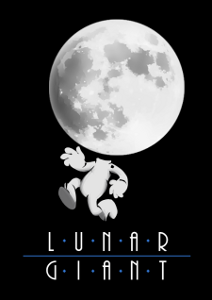
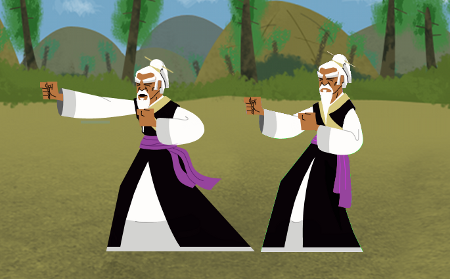

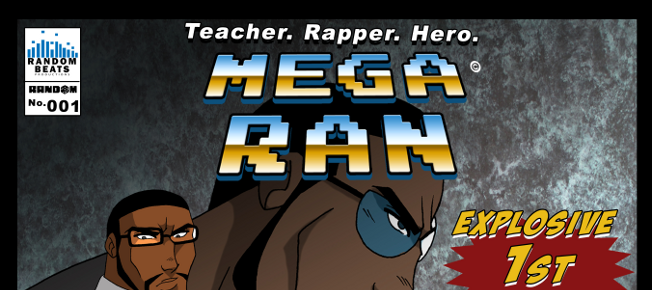
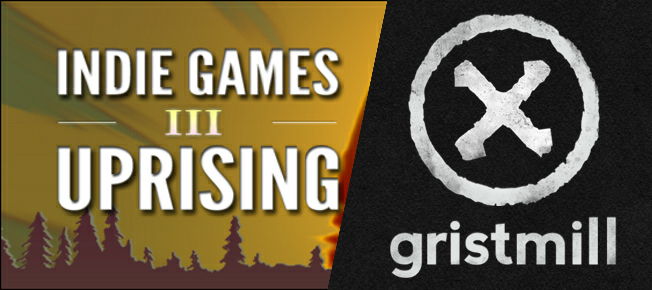
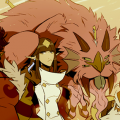
Trackbacks/Pingbacks
[...] process. While you’re at it, check out the other cool stuff Lunar Giant does in our recent interview with [...]